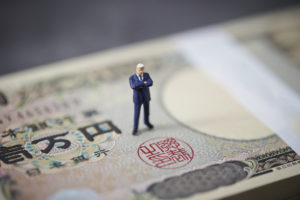Nissan and Ghosn – the cycle of coups d’état reaches back to the 1960s
I always prefer coincidence or cock-up to conspiracy, and former journalist and PR consultant Masaki Kubota clearly feels the same way, judging by the first few paragraphs of his article on Carlos Ghosn and Nissan in Diamond magazine.
As he says, in his years as a journalist, it was the standard defence of any Japanese executive caught up in a scandal that it was a conspiracy of people out to get him.
With Ghosn, you could easily claim, as many have, that this was a conspiracy, born of some kind of alliance between insiders at Nissan who wanted to get rid of Ghosn, his ex-wife and the Japanese government, and this kind of accusation is handy both for Ghosn and the French government or Renault who might have wanted Ghosn to continue to be influential.
But then Kubota does a classic kishotenketsu twist, pointing out the history of Nissan, going back to Ghosn’s installation and even before, is one of a cycle of coup d’etats.
Starting with the most recent history, of the inspection scandals – the exposure of the problem was a way of resisting the inspection system that Ghosn’s management team had introduced, shortly after Saikawa (identified as one of Ghosn’s team) became the new President of Nissan. It was in effect an abortive coup d’état.
Going further back to 1999 the then President Yoshikazu Hanawa was in negotiations with Daimler Chrysler and Ford but instead installed three Renault executives, without even consulting the previous Presidents who were advisors to the company at the time. “It was a kind of a coup d’état” the Nikkei said at the time.
Purging the Don
Even further back, to the 1980s, when the Chairman and former President for 16 years from 1957 was Katsuji Kawamata, there was a coup which led to the purge of union power at Nissan in Japan. It was well known that Kawamata gained his power through cooperating with the Nissan group labour union leader Ichiro Shioji. But then in 1984, Shioji, who was seen as the main obstacle to Nissan opening its factory in Sunderland UK and before that in the US, was hit by a scandal – photos appeared in the weekly magazine Focus, of Shioji on a yacht with a beautiful young woman. Criticism of Shioji, as “the Don”, mounted and he resigned on 22nd February 1986. The Nikkei reported on this as “the 2.22 coup d’état” a reference to the 26th February Incident, a failed coup attempt in Japan in 1936. It was said that the power behind the 2.22 coup was Takashi Ishihara who was in favour of global expansion, and was the President at the time.
Ishihara had been involved in an earlier coup, when he was still at managing director level in 1969. Documents were leaked to the media about an incident involving a Nissan microbus. It became clear that this was done in order to purge the upper ranks of the company.
As Kubota says, when there is a fraud in a company, this is often results in a clear out of those in the upper levels of management who are to blame. In fact, this kind of incident has been quite rare at Nissan, so when it happens, it is likely that it is part of a major change in strategic direction. So, Kubota asserts, it is definitely a coup d’état. In Kubota’s experience, it is hard to change a corporate culture that easily, so if Nissan is used to changing strategies by coup d’état, then it will continue to use this mechanism.
Corporate culture will not change just because foreign executives are put in place
Corporate culture will not change just because foreign executives are put in place. Kubota reminds us that for Saikawa to criticize Ghosn so strongly, when Ghosn has not yet been put on trial, is certainly a change from the usual crisis management of Japanese companies.
Kubota sees this singling out of Ghosn by Saikawa, who worked so closely with Ghosn for many years, as a kind of personal insurance.
So where does Saikawa fit in? Kubota has dug out the fact that Saikawa was executive assistant to the President from 1992, Yoshifumi Tsuji. Tsuji had taken over from Yutaka Kume, who had succeeded Ishihara, the instigator of the coup against union Don Shioji. Saikawa was therefore part of the team that survived the Renault coup.
So it goes round. As Kubota puts it, even in the midst of this coup d’état, there will be people wondering whether they will be the next to be stabbed.
For more content like this, subscribe to the free Rudlin Consulting Newsletter. 最新の在欧日系企業の状況については無料の月刊Rudlin Consulting ニューズレターにご登録ください。
Read More

 I had anticipated the “do you have any questions for us?” at a recent final interview for a non-executive directorship for an investment trust focused on Japan.
I had anticipated the “do you have any questions for us?” at a recent final interview for a non-executive directorship for an investment trust focused on Japan.